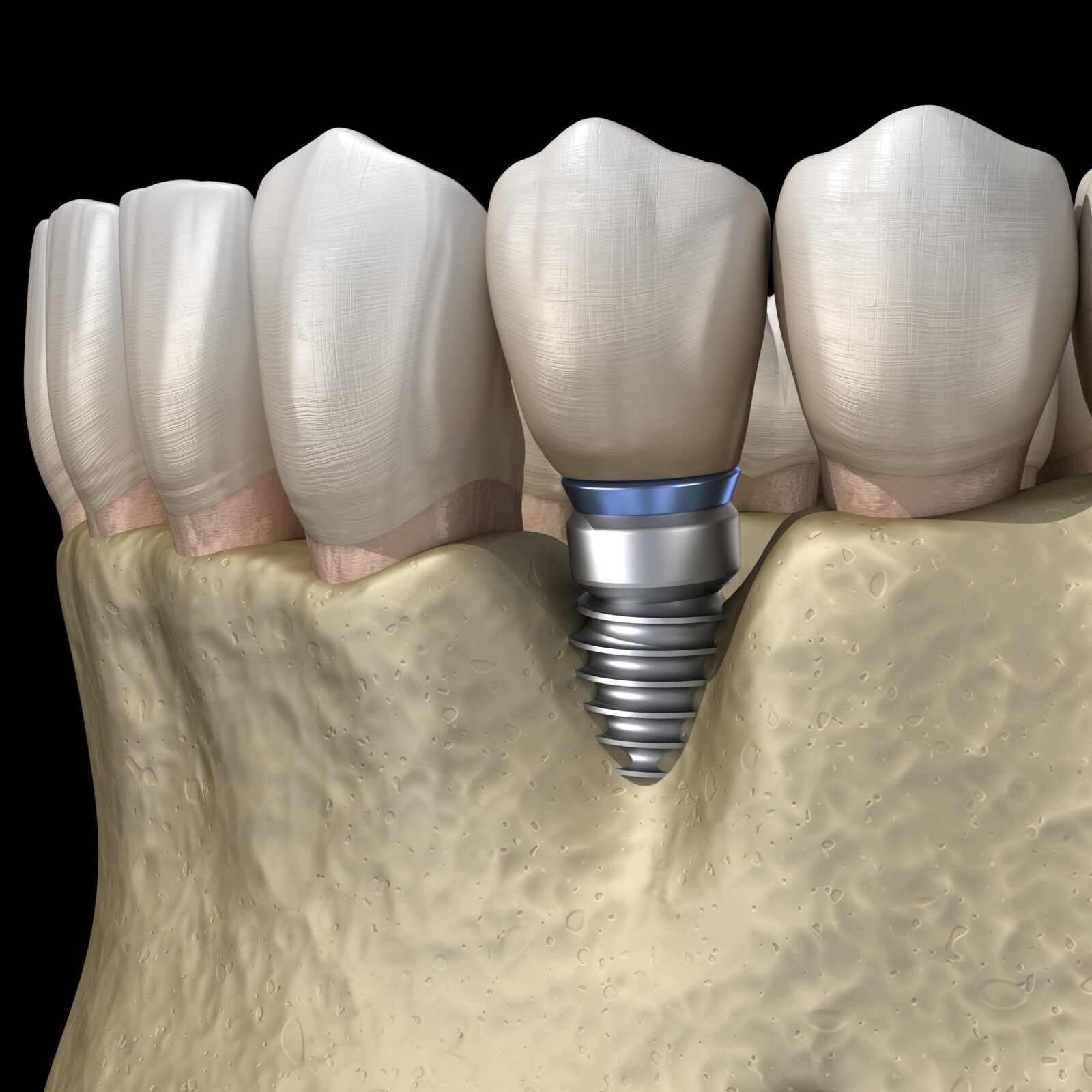Despite their strength, dental implants can still become damaged due to trauma or infection. These are considered dental implant emergencies and they can happen at any time. If you have a dental implant, it is important to know what to do in case of an emergency. In this blog post, we will discuss the definition of a dental implant emergency and what to do until you can get into your dentist’s office.
What is a Dental Implant Emergency?
Dental implants are a popular choice for restoring missing teeth. They are made of titanium and other materials, and they are surgically placed in the jawbone. Dental implants are strong and durable, but they can still become damaged. A dental implant emergency is any situation in which the implant is damaged by trauma or infection. Both trauma and infection should be considered emergencies because they both have the potential of causing the implant to fail and need to be removed.
Trauma

Trauma is a physical force that damages the implant, such as a vehicle accident or sports injury. Trauma can even be caused by biting down on something hard or falling. Basically any excess force applied to the implant can be considered trauma. Even trauma around the implant can potentially affect the implant itself.
Trauma can cause dental implants to become fractured or loose. Dental implants are more likely to become loose if they are still healing, however bone loss around the implant can also cause them to become loose when exposed to excess force. Even if there is no pain or looseness, it is recommended to be examined by your dentist anytime there is trauma to the implant and/or surrounding areas.
Infection
Infection occurs when bacteria invade the tissues around an implant and leads to inflammation called peri-implantitis. Peri-implantitis is an infection that can occur around the dental implant. It is a serious condition and can lead to bone loss and even implant failure. Peri-implantitis is caused by oral bacteria found in plaque. This is why it is important to practice good oral hygiene to ensure that plaque is regularly removed from around the implant.
Symptoms of peri-implantitis include gum inflammation, redness, and bleeding around the implant site (usually when you brush or floss). You may also feel some pain in the area or tenderness to the touch. If you have any of these symptoms while your dental implants are still healing, be sure to let your dentist know as soon as possible.
Is a broken restoration a Dental Implant Emergency?
Crowns, bridges, and dentures are three types of restorations that can be supported by dental implants. However since these restorations are above the gums, they are more likely to become cracked or chipped. When this happens, it is not considered a dental emergency since there is no underlying tooth that can become infected. With that being said, however, it is still a good idea to schedule an appointment with your dentist to ensure that there is no damage to the implant itself and to have the damaged restoration replaced.
What to Do in a Dental Implant Emergency
If you have a dental implant and it becomes damaged or infected, you should go to your dentist as soon as possible. Until you can get to your dentist, there are a few things you can do to help protect the implant and reduce the chances of further damage.

Practice Oral Hygiene
Practicing good dental hygiene is essential. It is vital to maintain your oral hygiene regimen of brushing and flossing until your appointment, unless your dentist tells you otherwise. To avoid making things worse, you may need to modify the way you brush and/or floss if you have an implant emergency.
Rinse Your Mouth
In addition to brushing and flossing, you may also want to rinse your mouth with warm salt water a few times a day. Salt water rinses provide a gentle way to kill bacteria and they can also provide relief for soft tissue irritations. A saltwater rinse can be made using 1 teaspoon of salt and 8 oz. of warm water.
Manage Your Pain
If there is any pain or swelling, you can take over-the-counter pain medication, such as ibuprofen or acetaminophen, to help reduce the inflammation. Be sure to follow the directions on the package for the correct dosage. You should also avoid using aspirin since it thins the blood and make bleeding gums worse.
Watch Your Diet
Until your implant can be assessed by your dentist, it is recommended to avoid eating foods that are hard, crunchy, chewy, or sticky. These foods can put pressure on the implant and may cause further damage.
Conclusion
If you have a dental implant that becomes damaged or infected, it is important to see your dentist as soon as possible in order to protect your oral health. By following these steps, you can help minimize any further damage until your appointment with your dentist.
